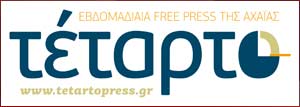-
 Το Κοινωνικό Δίκτυο για τον Αναγνώστη και τα Βιβλία του
Το Κοινωνικό Δίκτυο για τον Αναγνώστη και τα Βιβλία του- Αρχή
- Τι είναι το Bookia;
- Σύνδεση στη Βιβλιοθήκη μου
- Είμαι Συγγραφέας...
- Είμαι Εκδότης...
- Είμαι Βιβλιοπώλης...
- Σχόλια Συγγραφέων/Δημιουργών
- Το Bookia προτείνει...
- Όλα τα βιβλία
- Δημοφιλή βιβλία
- Βίντεο στο YouTube
- Βίντεο στο Facebook
- BookiaTV!
- Blog
- Ρεπορτάζ παρουσιάσεων βιβλίων
- Δελτία τύπου
- Συνεντεύξεις
- Εκδηλώσεις βιβλίου
- Κληρώσεις βιβλίων
- Κριτικές αναγνωστών
- Χαρίζονται
- Ανταλλάσσονται
- Ομάδες - Λέσχες
- Όλες οι Βιβλιοθήκες στο Bookia
- Τα βιβλιοπωλεία στην περιοχή μου
- Θέλω να βοηθήσω το Bookia
- Πολιτική ιδιωτικότητας
- Επικοινωνία
-
-
Όλα τα βιβλία- Όλα τα βιβλία
- ΝΕΕΣ ΚΥΚΛΟΦΟΡΙΕΣ
- Βιογραφίες
- Γενικά βιβλία
- Γεωγραφία
- Γλώσσα
- Εφαρμοσμένες Επιστήμες
- Θρησκεία
- Ιστορία
- Καλές τέχνες
- Κοινωνικές επιστήμες
- Λογοτεχνία
- Νεοελληνική Λογοτεχνία
- Παιδική/Εφηβική Λογοτεχνία
- Σπάνια βιβλία, χειρόγραφα
- Φυσικές και θετικές επιστήμες
- Φιλοσοφία
- Ψυχολογία
- eBooks
- CD-Audio
- CD-ROM
- Video CD
- Video DVD
- Επιτραπέζιο παιχνίδι
- Κασέτα
- Κασέτα VHS
- Παιχνίδια-Κατασκευές
- Χάρτες
- Άλλη μορφή
-
Προτάσεις -
Μηνύματα -
Εκδηλώσεις









 Κοινοποίηση
Κοινοποίηση




